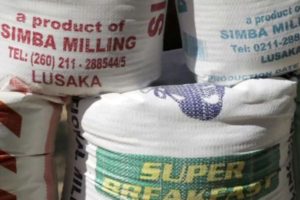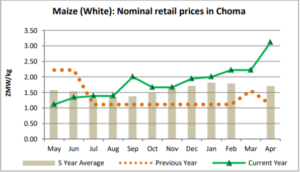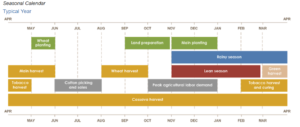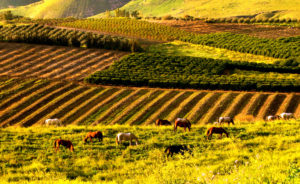
Photo courtesy of Harris Teeter
Many of us have a favored candy bar, either a recent product or one from yesteryear that we still hold with delicious memories in mind. Since childhood, one of those bars that I enjoyed such nice relations was a PayDay™ bar. To this day it is still a wonderful blend of salty nuts and caramel that is just perfect. The brand name “PayDay” is also a marketing gem in that it projects a reward or compensation for the buyer who purchases it. Its subliminal advertising promotes the subtle but intended meaning, we long for our “reward.”
As a follower of Jesus Christ, we have a “payday” in our future as well that is also well advertised in our Bibles and yet today there are some misconceptions about the event. But Paul is emphatic that the “payday” event he references is predicated on “kakos.” What is “kakos?”
The Bible talks about the Judgment Seat of Christ, otherwise known as the “Bema Judgment,” and is found in three primary places: Romans 14:10-12; 1st Corinthians 3:10-4:5; and 2nd Corinthians 5:1-10. It is not to be confused with the Great White Throne judgment found in Revelation 20:11-15.
“For the Son of Man is going to come in His Father’s glory with His angels, and then He will reward each person according to what He has done.” (Matthew 16:27)
“Judgment” Seat is translated from “Bema” Seat in the Greek. During ancient Grecian games held in Athens, the old arena contained a raised platform on which the president or judge of the games sat. From here he rewarded all contestants and awarded all winners. It was the “bema seat” or “rewards seat.” But it was never used as a judicial bench in the ancient Greek games. It is in this context that Paul likens our faith walk to that of a long distance race. (Hebrews 12:1; Galatians 5:7; 1st Corinthians 9:24-27; 2nd Timothy 4:7; Romans 5:3-4)
“And now little children, abide in Him, that when He appears, we may have confidence and not be ashamed before Him at His coming.” (1st John 2:28)
This Bema Seat Judgment is the first order of business for church-age saints who are translated at the “harpazo” or Rapture of the Church. “For we must all appear before the judgment seat of Christ” (2nd Corinthians 5:10). Everyone present is saved, salvation is not the issue here. This is the “final exam” that focuses on our fruit-bearing, not salvation. “There is therefore now no condemnation for those who are in Christ Jesus (Romans 8:1). Every born-again believer will stand before Christ and give an account for their service as a Christian. It is here that the saints of God will receive or lose rewards. The Judgment of Christ will not be a judgment of condemnation nor will anyone be subject to eternal damnation if they lose rewards.
“Every man’s work shall be made manifest: for the day shall declare it, because it shall be revealed by fire; and the fire shall try every man’s work of what sort it is. If any man’s work abide which he hath built thereupon, he shall receive a reward. If any man’s work shall be burned, he shall suffer loss: but he himself shall be saved; yet so as by fire.” (1st Corinthians 3:13-15)
As an example, Lot was vexed daily, but Abraham was not vexed; he had separated himself from the world. God destroyed Sodom but saved Lot, “yet as by fire.” Everything he had lived for was burned up.
“Now it is required that those who have been given a trust must prove faithful.” (1st Corinthians 4:2)
So, what is the basis of our judgment? How will Christ judge me?
“For we must all appear before the judgment seat of Christ; that every one may receive the things done in his body, according to that he hath done, whether it be good or bad.” (2nd Corinthians 5:10)
The question for most is, what is “bad?” The English word “bad” is translated from the Koine Greek “kakos” which according to Strong’s Concordance (2556) means primarily “worthless.” Thayer’s Greek lexicon definition of “kakos” reads as “1) of a bad nature. 1a) not such as it ought to be.” A comparable use of this word is the rendering of a producer’s fruit brought to market as “kakos,” or worthless, that is, the fruit is deemed to have gone “bad.” As a result, it is thrown out as unsuitable.
The believer’s works are brought into judgment, called “the things done in his body,” in order that it may be determined whether they are good or bad. This judgment is not to determine what is ethically good or evil, but rather that which is acceptable and that which is worthless/unprofitable to the work of Christ. (Dr. Earl Toms)
This judgment is not punitive nor is it to judge believers for sin of any kind, confessed or unconfessed. “Scripture teaches that for the believer, God’s justice has already been fully and forever satisfied at the Cross in relation to the believer’s sins. If God were to punish the believer judicially for his sins for which Christ has already rendered payment, He would be requiring two payments for sin and would therefore be unjust.” (J. Hampton Keithley, III)
“For I will be merciful to their iniquities, And I will remember their sins no more….For by one offering He has perfected for all time those who are sanctified.” (Hebrews 8:12; 10:14)
Okay, then help me understand what is considered “worthless” or “unsuitable?”
Essentially, we must give an account of what we have done after trusting Christ as our Savior. In other words, now that you have been saved, what have you done with it? Paul uses this brilliant analogy:
“According to the grace of God which was given to me, as a wise master builder I had laid the foundation, and another builds on it. But let each one take heed how he builds on it…Now if anyone builds on this foundation with gold, silver, precious stones, wood, hay, straw, each one’s work will become manifest; for the Day will declare it, because it will be revealed by fire; and fire will try each one’s work, of what sort it is.” (1st Corinthians 3:10,12,13)
Notice that there are six commodities listed in two groups, in descending order of worth. Three are products of God’s creative act (gold, silver, precious stones) and three are the result of natural growth and development (wood, hay, stubble). The first three are permanent, the last three will perish under fire. (Think on this: you could have the largest load of wood but it would be worth less than the smallest diamond). But remember, it is the “work” being appraised, not the person.
One day all Christian believers will stand face to face with our Lord Jesus Christ and He will judge righteously and fairly and with complete knowledge because He is God. The Lord will look circumspect into our lives and will examine where what we did was with the right heart and right motive. Many people perform acts of service today with wrong motivation. They do it for competition, for compensation, for their own reputation, or even for narcissistic reasons (i.e. Facebook). In some cases acts of service are done begrudgingly because they are forced to do it. God will look into our heart in all of these things.
“For God is not unrighteous to forget your work and labor of love, which ye have shown toward His name in that ye have ministered to the saints, and do minister.” (Hebrews 6:10)
Today might be a day to take our lives under review. What are our motivations? I might even become distressed, not so much for sins I have committed in the past….but for times and opportunities I have wasted, for time frittered away on selfish things or foolishness….for the people I might have helped…for moments I lacked the courage to exploit for Him…..etc. etc. But, every day the Lord affords us gives us time to prepare for “payday” and possibly change our “grading.” Is it time for you to assess?
“Of all the words of tongue or pen, the saddest are these: ‘it might have been.’ (John Greenleaf Whittier)
Sources: Donald Perkins, Dr. J. Vernon McGee, Dr. Chuck Missler, Dr. J. Dwight Pentecost, Dr. Earl Toms, J. Hampton Keithley, III, Arthur Pridham
******************************************************************************************************************************
Update:
Due to a lengthy illness I was unable to accompany any of the earlier spring missions teams with Sons of Thunder that traveled to Zambia and, at present, it does not appear that I will be returning for the remainder of this year. As the Lord is willing, I am hopeful to return early next year.
Carpenter Ministries is a full-time ministry and if you would like to support the ministry you can make donations via the “contribute” page on the “A Carpenter’s View” blog site. Questions you may have about the ministry might be answered in the “about” section of the blog or you can email me at the address provided there.




